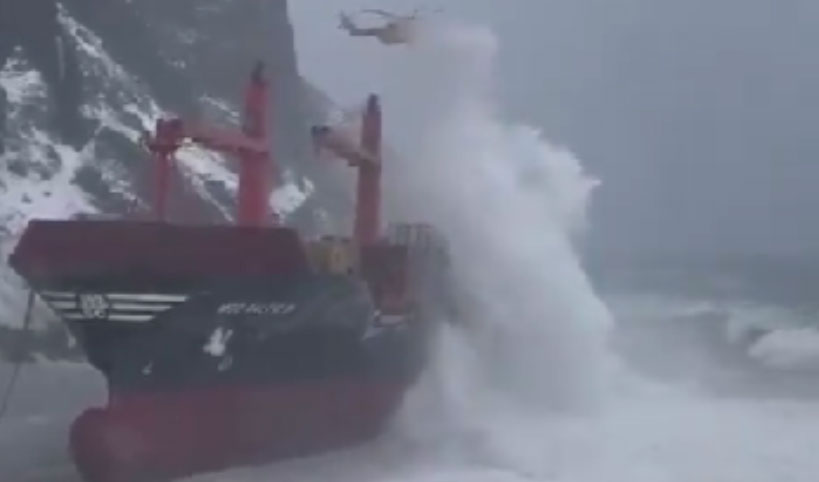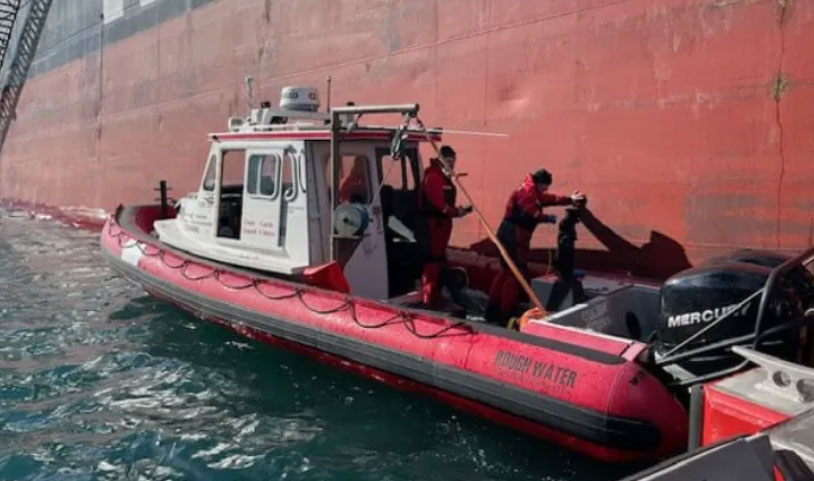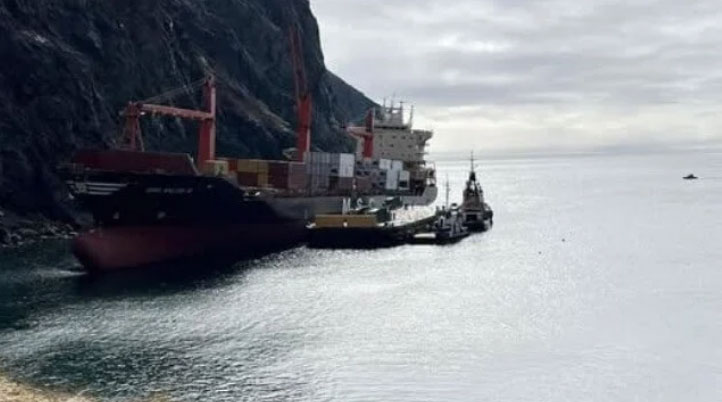

After being stranded for a month, the container ship MSC Baltic III is still being salvaged
On February 15, the MSC Baltic III container ship (33,767 DWT) ran aground off Wild Cove, Newfoundland, and rescue efforts were complicated by its remote location, coupled with winter weather, including high winds and ice in the bay.
A winter storm has been affecting the area since the 679-foot (203-meter) vessel ran aground. In previous attempts at salvage operations, the Coast Guard said rescue teams were often unable to board the ship and weather hampered some operations on the water.
Breaking news, as the weather improved in the area, the salvage team was able to place a barge nearby.
The Canadian Coast Guard said in its update: "Tugboats and barges contracted by MSC Shipping were able to dock with MSC Baltic III to load a number of fracking tanks and containment booms onto the ship. The fracking tank will be used to store and unload fuel."
The immediate concern is fuel and other potential contaminants on board. After inspecting the vessel, the salvage team reported that it was resting at the bottom of the sea, but that the hull had suffered significant damage. It said there was water in the cargo hold and engine room and the ship could not be safely refloated at the moment. The tanker survey confirmed that there were about 1.7 million liters of heavy oil and Marine gasoline on board.
The Coast Guard reported that several containers containing polymer beads (plastic particles), which are considered dangerous cargo, had been removed from the ship. MSC Mediterranean Shipping had previously said the containers had been sealed to reduce the risk of leakage.
The fuel on board needs to be heated before it can be pumped out of the tank. MSC and its salvage company have proposed several salvage options, including loading fuel and containers onto barges, or also using land access. However, the road needs to be upgraded in order to transport heavy equipment to where the ships are moored.
Local news media reported that rescue efforts were still underway and that fishermen hoped to make progress by the end of the month. The local fishing season begins on April 1, and the concern is access to the area and the continuing danger of pollution.
A winter storm has been affecting the area since the 679-foot (203-meter) vessel ran aground. In previous attempts at salvage operations, the Coast Guard said rescue teams were often unable to board the ship and weather hampered some operations on the water.




Breaking news, as the weather improved in the area, the salvage team was able to place a barge nearby.

The Canadian Coast Guard said in its update: "Tugboats and barges contracted by MSC Shipping were able to dock with MSC Baltic III to load a number of fracking tanks and containment booms onto the ship. The fracking tank will be used to store and unload fuel."
The immediate concern is fuel and other potential contaminants on board. After inspecting the vessel, the salvage team reported that it was resting at the bottom of the sea, but that the hull had suffered significant damage. It said there was water in the cargo hold and engine room and the ship could not be safely refloated at the moment. The tanker survey confirmed that there were about 1.7 million liters of heavy oil and Marine gasoline on board.
The Coast Guard reported that several containers containing polymer beads (plastic particles), which are considered dangerous cargo, had been removed from the ship. MSC Mediterranean Shipping had previously said the containers had been sealed to reduce the risk of leakage.
The fuel on board needs to be heated before it can be pumped out of the tank. MSC and its salvage company have proposed several salvage options, including loading fuel and containers onto barges, or also using land access. However, the road needs to be upgraded in order to transport heavy equipment to where the ships are moored.
Local news media reported that rescue efforts were still underway and that fishermen hoped to make progress by the end of the month. The local fishing season begins on April 1, and the concern is access to the area and the continuing danger of pollution.





